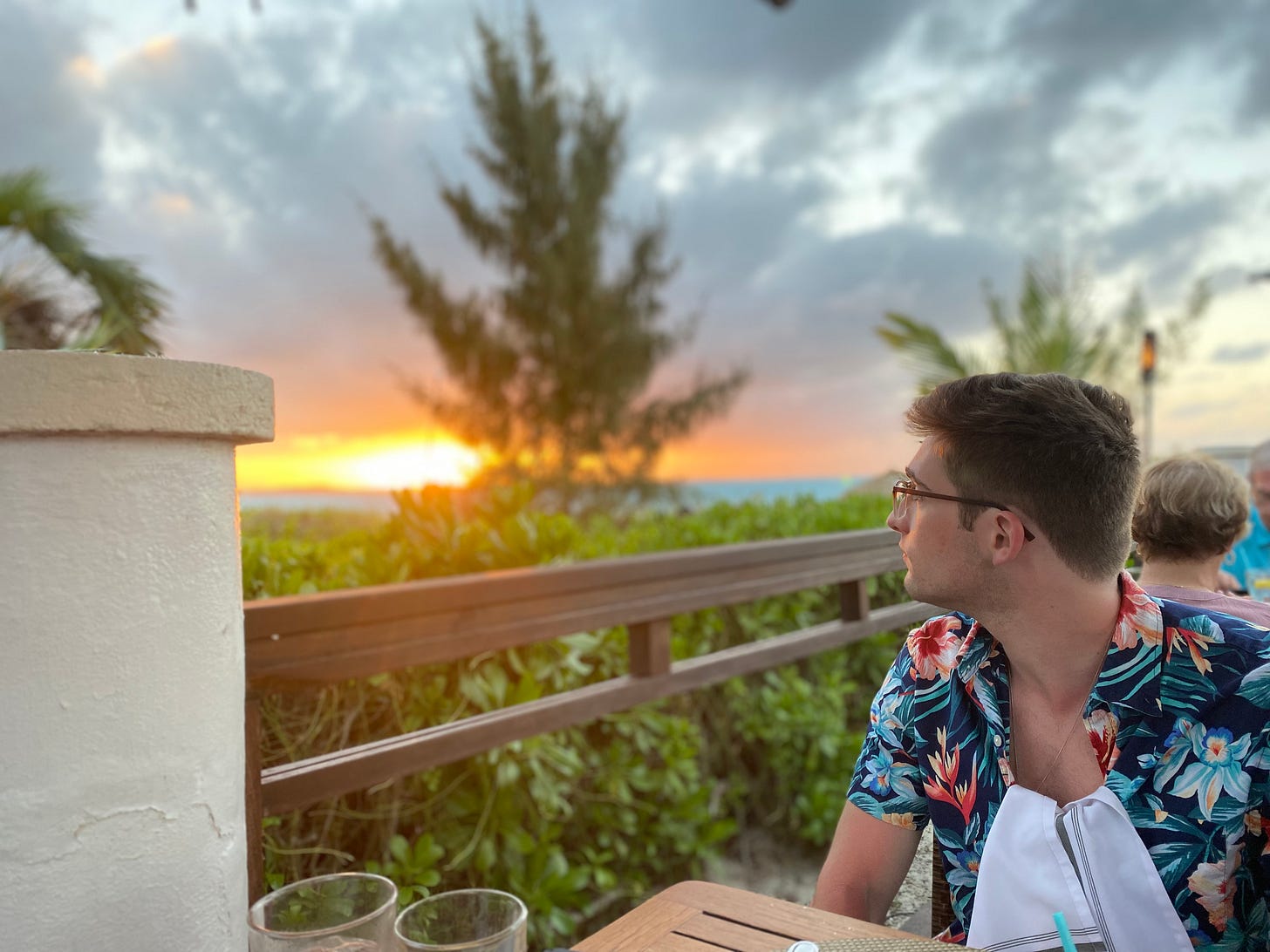Hiatus Over; Writing Resumed
Using game theory to convince my mom to board the flight back from Turks and Caicos.
To my small but loyal readership, I must apologize for the dearth of content for the past week and a half. I can explain: after finishing the Hazlitt Fellowship, I had to buckle down and study for finals. Immediately upon wrapping up my last exam, I traveled from Hanover to Boston, Boston to New York, and New York to Turks and Caicos, where my family awaited the return of their prodigal son in paradise.

There I sunbathed, read (I finished Jane Eyre, after halting my reading earlier this term), swam, exercised, and drank more than my fair share of piña coladas. The break was much needed, well deserved, and I am happy to return to my normal schedule of daily writing. I have much to say about the ending of Charlotte Brontë’s Jane Eyre (1847), some thoughts on Creed III (not nearly as entertaining as the first two), and will soon have some kind of meditation on American Psycho (the novel by Bret Easton Ellis, not the film adaptation).
In this post, I will explore the strategic decision-making that determined my family’s decision to get onboard a Delta flight back to JFK after its arrival was delayed due to “such severe turbulence.” The airport staff announced, several times over the course of an hour, that “maintenance personnel were still investigating the situation.” Finally, the intercom reported that the airplane had been cleaned and was ready for boarding. “The situation” that busied maintenance personnel was never specified. More disconcerting still, passengers were asked to purchase and bring aboard their own beverages and food as in-flight service would be impossible due to “such severe turbulence” that doing so would be unsafe for the crew. Did I mention that my mom has crippling flight anxiety?
So, besides white-knuckling the trip and forcing herself aboard the plane through sheer willpower, what did I say to persuade my mom that the flight would be safe? Economics, of course! Specifically, game theory: the flight attendants, the captain, and the co-pilot all, presumably, value their lives and, even if they completely discounted those of their passengers, would not take a significant gamble therewith simply to protect Delta’s bottom-line. But this last part is an utter misconception; Delta itself has a great financial incentive to err on the side of caution as losing one of its aircraft— and the lives of everyone on-board—would be to commit reputational suicide and lose out on a significant portion of future profits. So, unless Delta’s discount factor asymptotically approaches zero, i.e., they believe the world is ending tomorrow, they are not going to take such a gamble and will further align the incentives of their employees to reflect this. Finally, even if there existed perverse incentives for Delta and its employees to fly a broken airplane (which I cannot divine), the maintenance crew, as I learned in my industrial organization class, is trained and employed by the airplane manufacturer (Boeing, in this case) who’s exclusively concerned about the reputation of their aircraft. These engineers couldn’t care less about delaying or canceling an airline carrier’s flight if they fear the plane is even remotely at risk of plummeting from the sky—they work for Boeing, not for Delta.
Needless to say, since I am writing this from my family’s home in Brooklyn, the airplane was flight-worthy, the pilots and flight attendants were not wantonly gambling with their lives and those of their passengers, and the airplane mechanics fixed whatever had to be fixed. The pilot even steered us away from the worst of the “rough air”1 and we only experienced 7 out of the announced 15 minutes of mild turbulence.
Has anyone else noticed that this is the euphemism employed to describe turbulence? When did this happen?



